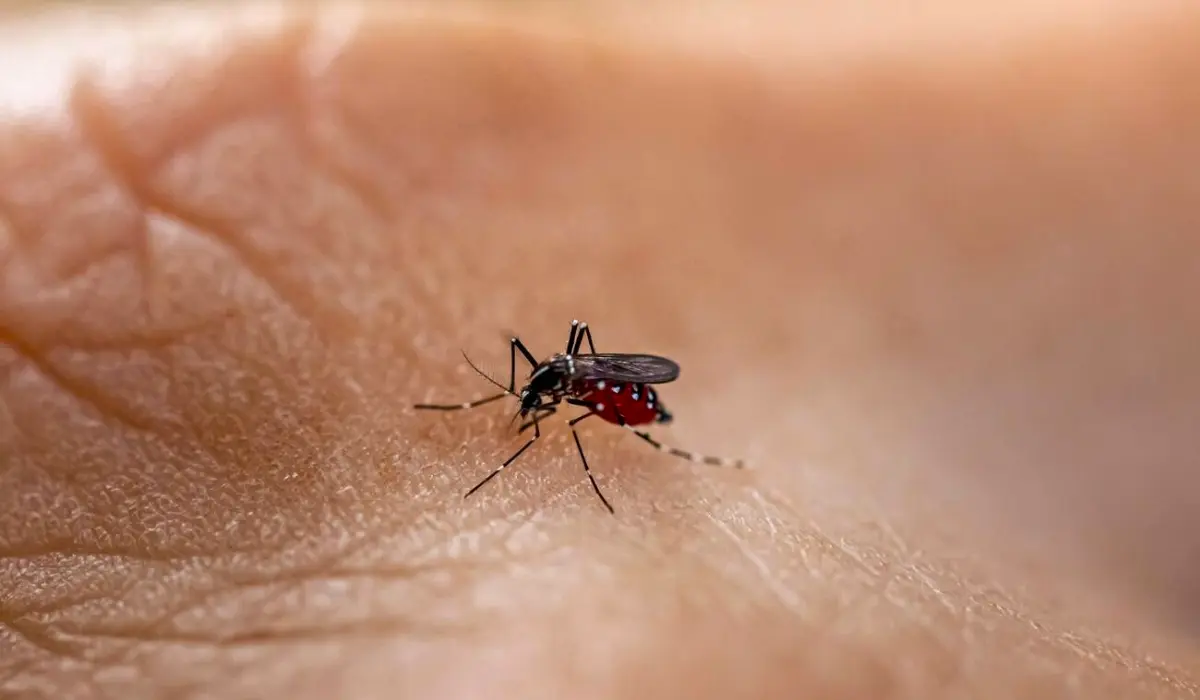In a concerning development, a New Hampshire resident has died after contracting Eastern Equine Encephalitis virus (EEEV), marking the state’s first human case of this rare mosquito-borne disease since 2014. This tragic incident highlights the ongoing risks associated with EEEV and prompts increased vigilance in mosquito control efforts across New England.
New Hampshire Resident Dies From Mosquito-Borne Encephalitis Virus Infection
New Hampshire health officials confirmed the death of an adult resident from Hampstead, who was hospitalized due to severe symptoms associated with EEEV. Despite efforts to treat the patient, the illness proved fatal. This case is particularly notable as it is the first human EEEV infection reported in New Hampshire in ten years. The last known cases in the state occurred in 2014, when three people were infected, resulting in two deaths.

Eastern Equine Encephalitis is a rare but serious viral infection spread by mosquitoes. The virus primarily affects horses but can occasionally infect humans, leading to severe neurological symptoms. The Department of Health and Human Services (DHHS) has not released detailed information about the deceased individual, such as age or gender, but the impact of this case is profound for the community.
Mosquito-Borne Threat and Regional Impact
The EEEV outbreak is not isolated to New Hampshire. Neighboring states, including Massachusetts and Vermont, have also reported cases and detected the virus in mosquito populations. Massachusetts, in particular, is experiencing heightened concern due to the identification of EEEV in several mosquito samples and even in horses. The state has initiated extensive mosquito control measures, including aerial and truck-mounted spraying, to curb the spread of the virus.
Vermont has reported its own case of EEEV, marking the first in the state since 2012. Health officials are closely monitoring the situation and taking preventive steps to protect residents from further infections. The virus’s presence in multiple states underscores the broader regional risk and the need for coordinated mosquito control efforts.
Symptoms and Prevention
Eastern Equine Encephalitis virus causes flu-like symptoms in most people who are infected. These symptoms can include fever, chills, and muscle aches. However, severe cases can lead to encephalitis (inflammation of the brain) or meningitis (inflammation of the protective membranes covering the brain and spinal cord). The disease can be life-threatening, with approximately one-third of those who develop encephalitis from EEEV succumbing to the illness. Survivors often face long-term neurological issues, including convulsions, paralysis, and cognitive impairments.
Currently, there are no vaccines or specific antiviral treatments for EEEV. The Centers for Disease Control and Prevention (CDC) advises managing symptoms with rest, fluids, and over-the-counter pain medications. Preventive measures are crucial to reduce the risk of infection. Health officials recommend using effective mosquito repellents, wearing long-sleeve clothing and long pants, and avoiding outdoor activities during peak mosquito activity times, such as early morning and evening.
Additionally, removing standing water around homes can help reduce mosquito breeding sites. Ensuring that doors and windows are properly screened can also help keep mosquitoes out of living spaces.
Community Response and Ongoing Measures
In response to the recent EEEV cases, local authorities are ramping up their mosquito control programs. In Massachusetts, significant efforts are being made to address the high risk of EEEV transmission. Public health departments are actively engaging in mosquito spraying and advising residents to take preventive actions to minimize their exposure.
New Hampshire’s DHHS has echoed these recommendations and emphasized the need for continued vigilance as the mosquito season progresses. The risk of EEEV and other mosquito-borne diseases is expected to persist until the first hard frost, which will significantly reduce mosquito activity.
This unfortunate death serves as a reminder of the dangers posed by mosquito-borne diseases and the importance of community-wide efforts to protect public health. As officials continue to monitor the situation and implement control measures, residents are encouraged to stay informed and take proactive steps to safeguard themselves from mosquito bites.

